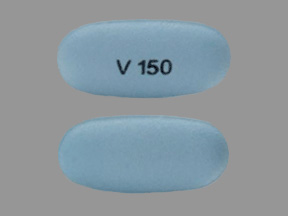Ivacaftor and Alcohol/Food Interactions
There are 2 alcohol/food/lifestyle interactions with ivacaftor.
Ivacaftor Food/Lifestyle
Moderate Food Interaction
Ivacaftor should be taken with fat-containing foods such as eggs, avocados, nuts, meat, butter, peanut butter, cheese pizza, and whole-milk dairy products to help with its absorption. Do not consume grapefruit juice or any food that contains grapefruit or Seville oranges during treatment with ivacaftor unless directed otherwise by your doctor. Grapefruit juice can significantly increase the blood levels of ivacaftor. This may increase the risk and/or severity of serious side effects such as liver damage. Call your doctor immediately if you have fever, chills, joint pain or swelling, unusual bleeding or bruising, skin rash, itching, loss of appetite, fatigue, nausea, vomiting, abdominal pain, dark urine, pale stools, and/or yellowing of the skin or eyes, as these may be signs and symptoms of liver damage. It is important to tell your doctor about all other medications you use, including vitamins and herbs. Do not stop using any medications without first talking to your doctor.
Switch to professional interaction data
Ivacaftor High Blood Pressure (Hypertension)
Moderate Potential Hazard, Moderate plausibility
ivacaftor - hypertension
The use of products containing ivacaftor is associated with an increase in blood pressure. Close monitoring of blood pressure is recommended periodically in all patients, in particular in hypertensive patients.
Switch to professional interaction data
Ivacaftor drug interactions
There are 453 drug interactions with ivacaftor.
Ivacaftor disease interactions
There are 6 disease interactions with ivacaftor which include:
More about ivacaftor
- ivacaftor consumer information
- Check interactions
- Compare alternatives
- Reviews (1)
- Side effects
- Dosage information
- During pregnancy
- Drug class: CFTR potentiators
- Breastfeeding
Related treatment guides
Drug Interaction Classification
| Highly clinically significant. Avoid combinations; the risk of the interaction outweighs the benefit. | |
| Moderately clinically significant. Usually avoid combinations; use it only under special circumstances. | |
| Minimally clinically significant. Minimize risk; assess risk and consider an alternative drug, take steps to circumvent the interaction risk and/or institute a monitoring plan. | |
| No interaction information available. |
See also:
Further information
Always consult your healthcare provider to ensure the information displayed on this page applies to your personal circumstances.


